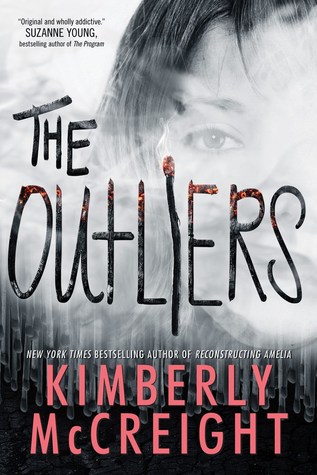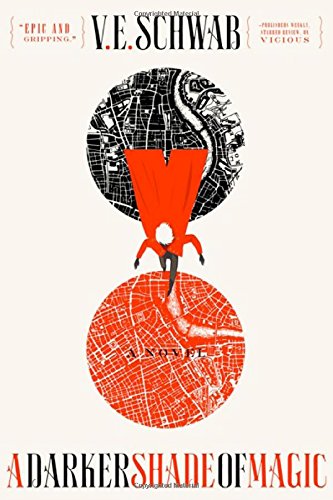But what is the difference?
When your character is likable, they are someone your reader enjoys reading about. This relies more heavily on personal preference and so it's sometimes impossible to create a universally liked character, though many writers lose sleep trying to create one. A character can be two dimensional, crude, rude, erratic in their actions, and completely unsympathetic, but they may still be likable if there is something about the character the reader connects with and enjoys. A character can be likable because they are sympathetic, but they don't have to be sympathetic to be likable.
When your character is sympathetic, they are doing something or expressing ideas that the reader can approve of. They are working to save their world, rescue their parents, save their love interest, etc. Even if as a person, they are incredibly unlikable, your character can still be sympathetic by doing the right thing.
For example, in my review of The Outliers, I talk about how much I disliked the main character, Wylie. This was mostly due to personal preference, as Wylie did things and said things that I thought were rude and uncalled for. However, her overall motivation throughout the story-- saving her best friend-- was something I could sympathize with, and therefore I could continue reading. It's like the idea of people working together in a crisis-- I can deal with not liking a character based on who they are, so long as their actions or ideas are sympathetic.
But where do you draw the line? How do you know if you're writing a likable character, or a sympathetic one? Or neither? Or both?
As I said, creating a likable character can be frustrating and nearly impossible, mostly because it generally comes down to personal preference. There are people who love Voldemort, despite the fact that JK Rowling made no attempt to make him likable. You cannot control how people will respond to your characters, just as you can't control how people respond to your personality. So don't even try. Don't focus on making people like your character, make your character consistent with who they are. If you want a stubborn character, don't tone down that trait to make them more likable. Embrace the stubborn part of your character, make it consistent through their actions and reactions, and readers will like your character for being true to themselves.
On the other hand, creating a sympathetic character is something a writer does have control over, and should pay attention to. Generally, it's not hard to make your character a sympathetic one. Plot motivators tend to make for sympathetic situations-- needing to rescue a loved one, stop a catastrophe, free people from suffering, etc. But you don't need those external motivators to create sympathetic characters, as their beliefs and ideas have a big impact on how the reader views them. For example, your character may be a high class thief only out for personal gain, but their decision not to hurt people while on the job instantly makes him a sympathetic one.
External elements to create sympathy are the easiest to do. Internal motivators to create sympathy have a much stronger impact. Your character can have both external and internal motivators to create sympathy, or only one or the other. Toeing the lines can create interesting character dynamics and is something authors tend to do frequently.
In the Second Sons Trilogy by Jennifer Fallon, the main character, Dirk, has external motivators to make him sympathetic, but no internal motivators. He is working to save the kingdom by toppling a corrupt system, not necessarily for the betterment of his fellow people, but more because the structure of the royal court puts him in danger. He is all around unlikable-- arrogant, snobby, and really doesn't do a single nice thing throughout the whole series unless it serves him, despite the fact that he is doing the "right" thing. Jennifer Fallon admitted that she intended to do this with Dirk-- she wanted to see how bad a main character could be while still keeping the reader on his side. And it certainly worked! By the end of the series I thought Dirk was pretty much the scummiest guy you could meet, but he somehow still managed to remain the hero of the story.
On the other side of the coin, in Vicious by VE Schwab, the main character Victor has internal motivators without much in the way of external motivators. He chases down his best friend who has become a serial killer, and though his expressed motivation is based on revenge (which doesn't make him overly sympathetic), he does acknowledge that he thinks what Eli is doing is wrong. So even though his external motivation is a choice of him getting revenge, his internal motivation makes him sympathetic as it shows he cares about others.
Characters can be a hard balance. I speak from experience, as they've always been something I've struggled with. But managing that balance, once you have it, makes your book so much stronger overall.
So, since I threw a lot at once, to sum up:
Likable Characters are those who are liked by the reader, for one reason or another. All characters are likable in some way. Likable characters are based on reader preference. Generally, good deeds = people like your character, but the reasons a character is likable are as varied as types of literature.
Sympathetic Characters are those whose actions, motivations, or beliefs, whether its proclaimed from the rooftops or inserted subtly, create sympathy and approval for the reader. They approve of the hero's journey, or at least their reasons for the journey.
External Motivators for Sympathy are external forces that put the character into a situation that garners sympathy. They can be as literal as people locked in a cage needing to escape, or pressures from other characters to do things they don't want to.
Internal Motivators for Sympathy are more the beliefs and morals held within the character that propels them to take action and creates sympathy in the reader. They can be stated outright or implied. They still inspire sympathy and originate from the character's belief system.
Hopefully this helps to shed some light on what I mean when I talk about sympathy vs likability. So writers out there, relax, take a deep breath. Stop pulling your hair out trying to make your characters liked by everyone, and just make your characters true to themselves.









